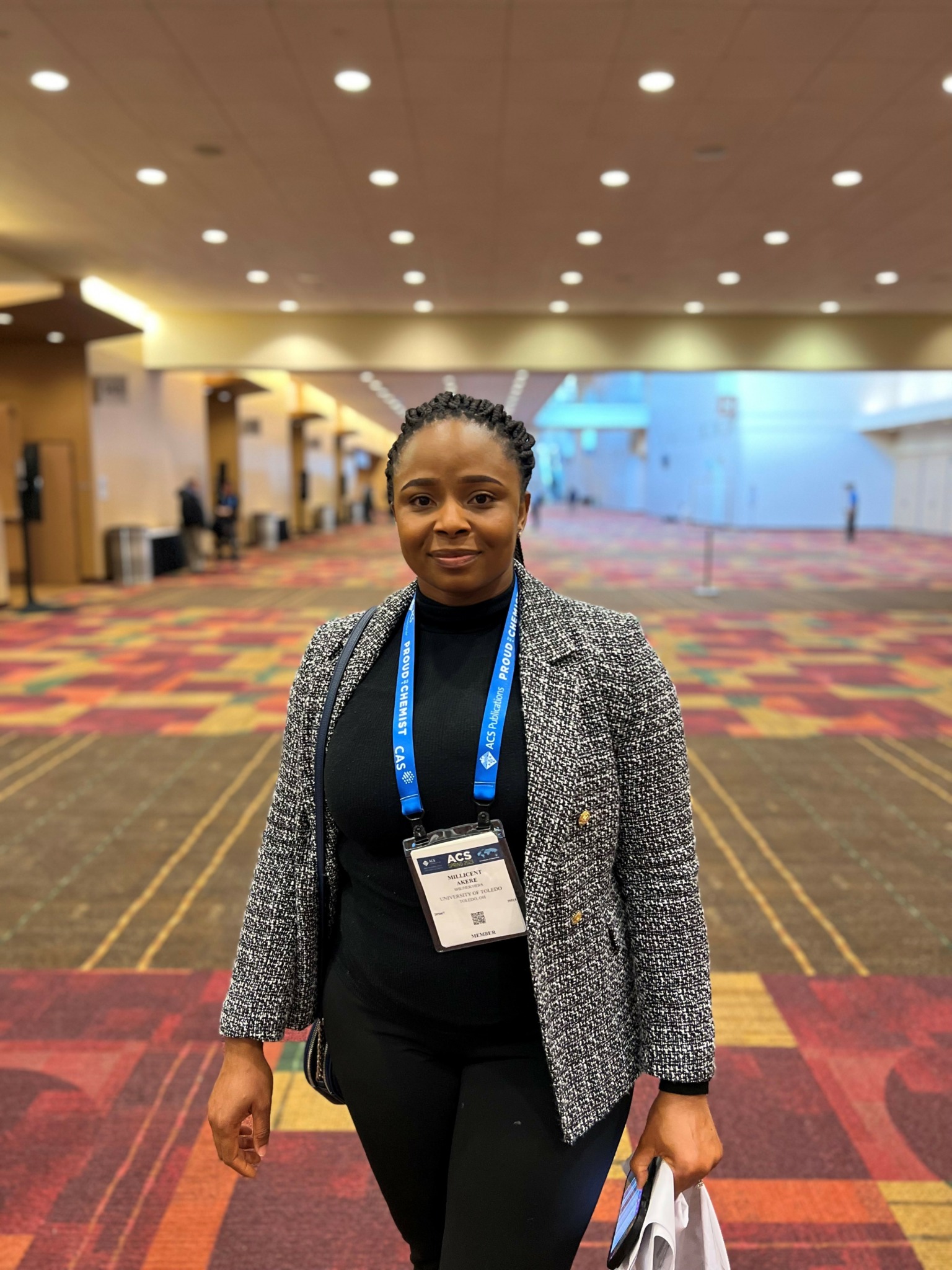We recently connected with Millicent Akere and have shared our conversation below.
MILLICENT, thanks for joining us, excited to have you contributing your stories and insights. If you had a defining moment that you feel really changed the trajectory of your career, we’d love to hear the story and details.
A defining moment in my career was when I transitioned from studying applied mathematics and chemistry to pursuing a PhD in medicinal and analytical chemistry. The turning point came through a series of pivotal moments that led me to take a deep look at my skills, my sense of purpose, and the impact I wanted to have. This reflection was sparked by both professional experiences and personal insights, which pushed me to reassess the direction of my career and the unique contributions I could make. I started to recognize how my background in chemistry could be applied to pressing issues and where I could make a real difference, especially in areas where my skills could be directed towards meaningful, impactful research.
Receiving the Outstanding Achievement in Chemistry award from Brescia University and my acceptance into the PhD program in medicinal and analytical chemistry at the University of Toledo helped nudge me in the right path. This career shift became even more significant during a trip to Atlanta, where I attended the funeral of the close friend of a family member who had tragically died from a synthetic drug overdose. That experience opened my eyes to the devastating impact of synthetic drugs on our communities and gave me a powerful sense of purpose.
After that, I committed myself to research in drug abuse, focusing on discovering and synthesizing compounds that could help counteract the effects of opioid abuse. Joining a lab dedicated to drug abuse research, I’ve been able to make meaningful progress, driving research and pioneering solutions that could play a role in addressing the opioid crisis in the U.S. This experience has fueled my passion for creating impactful science that could save lives.
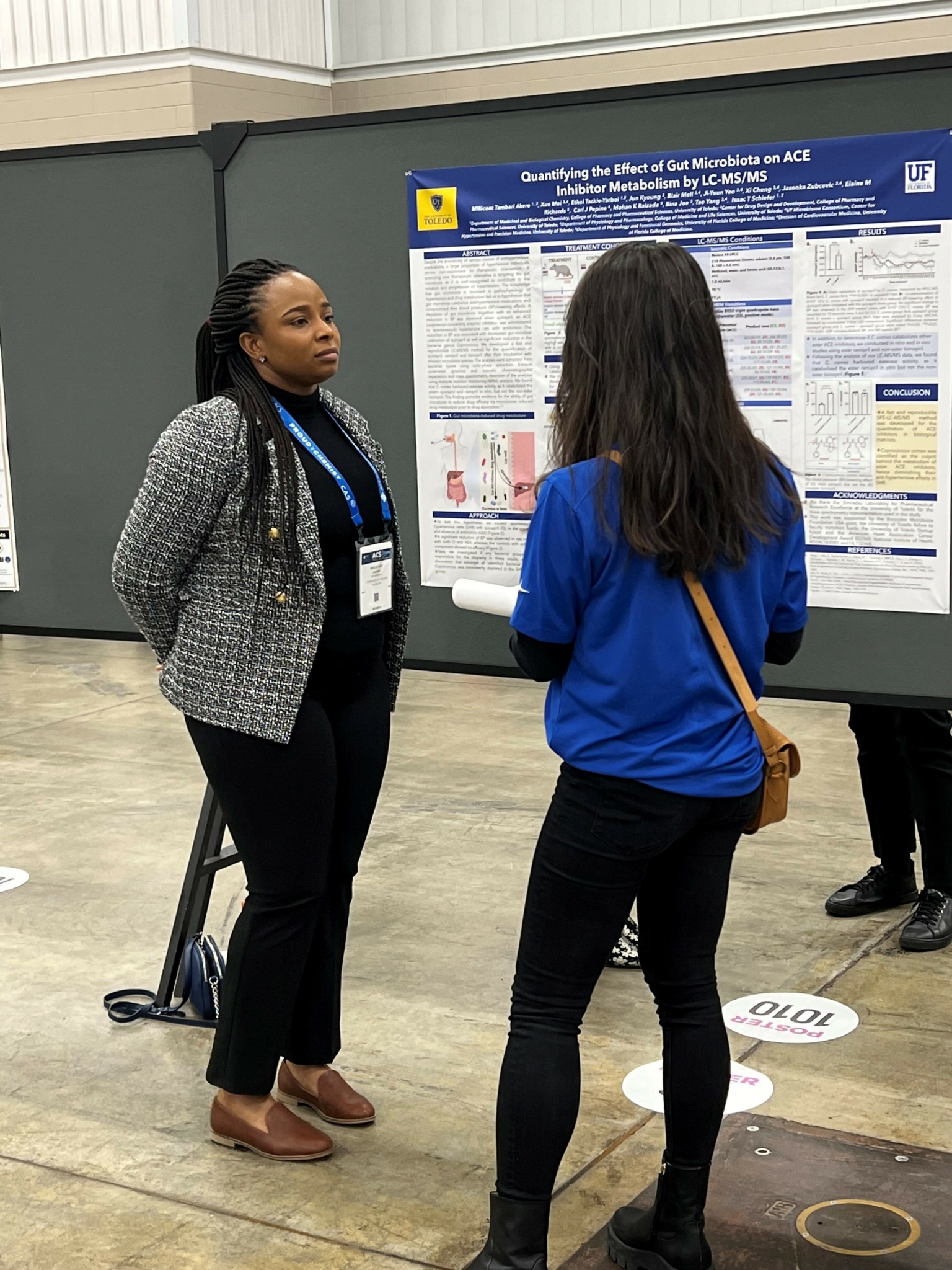
As always, we appreciate you sharing your insights and we’ve got a few more questions for you, but before we get to all of that can you take a minute to introduce yourself and give our readers some of your back background and context?
I’m a passionate scientist with a strong foundation in applied mathematics, engineering, and chemistry, dedicated to advancing research and developing innovative solutions in the field of drug addiction and treatment. My work is driven by a desire to create effective and life-saving treatments that address critical public health issues, particularly the opioid crisis. With expertise in drug design, organic synthesis, cell culture, and chemical biology, I work to develop compounds that could mitigate the devastating effects of opioid abuse and other public health issues.
I am an active member of professional organizations including the National Organization for the Professional Advancement of Black Chemists and Chemical Engineers (NOBCChE) and the American Chemical Society (ACS), as well as groups supporting diversity in STEM, such as **Empowering Women in Organic Chemistry (EWOC) and the Society for Women Engineers (SWE). My leadership experience includes serving as Vice-President of the NOBCChE Student Chapter at the University of Toledo and contributing to the Diversity, Equity, Inclusion, and Accessibility (DEIA) Committee, advocating for inclusive practices within scientific spaces.
What sets my work apart is my holistic approach—combining technical expertise in analytical instrumentation like NMR, FTIR, HPLC, and LCMS with a commitment to community outreach and public health. My research not only aims to advance scientific knowledge but also to bridge the gap between lab-based research and real-world impact. My affiliations with organizations like STEM Hub for Industry/Innovative Networking & Exchange (SHINE) allow me to collaborate with like-minded professionals, continuously pushing for progress and accessibility in STEM fields.
I am most proud of my contributions to research addressing the opioid epidemic and my commitment to fostering diversity and representation in STEM. My goal is to inspire others in the field and to work towards tangible solutions that can improve public health and save lives.
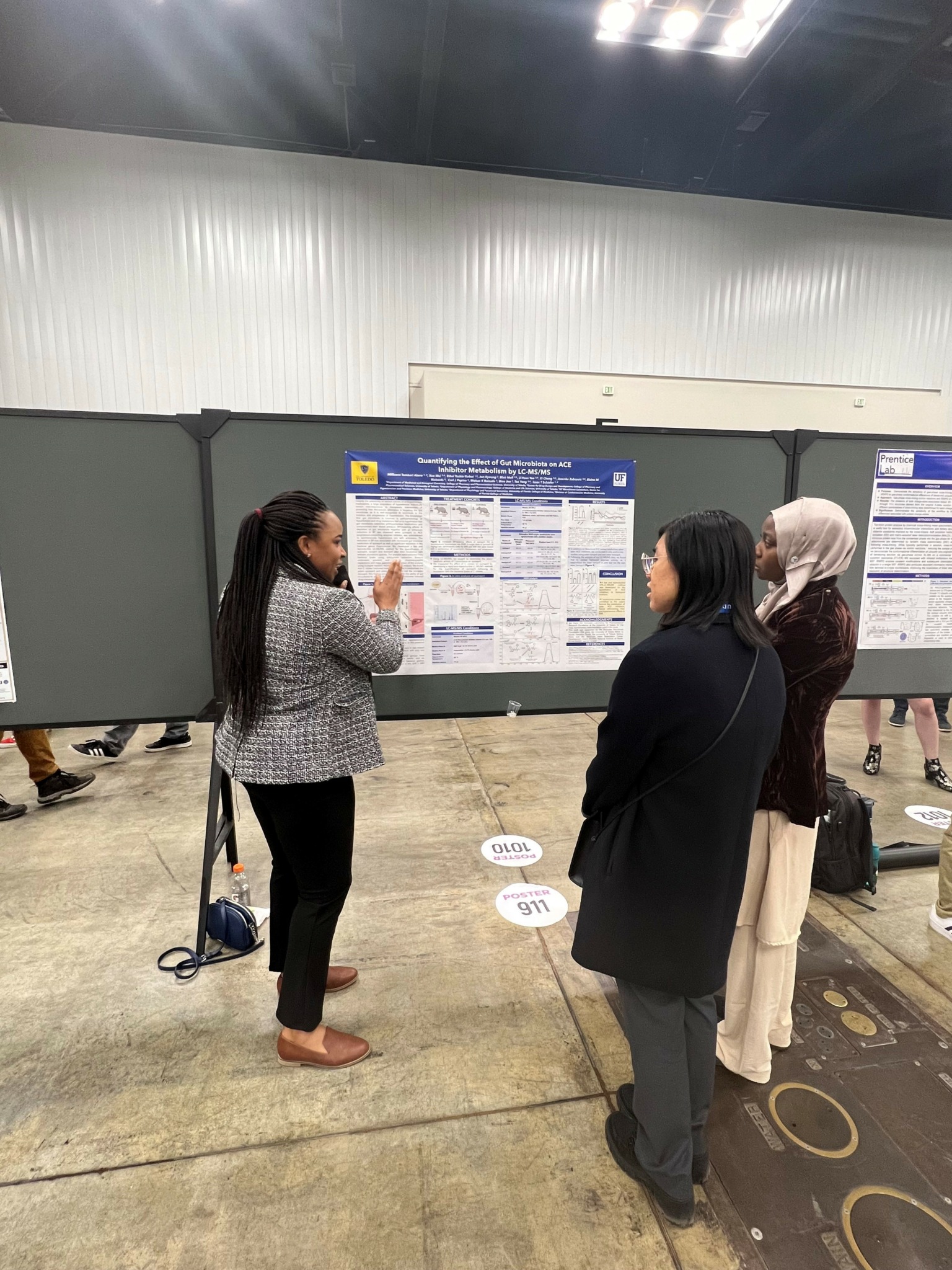
Putting training and knowledge aside, what else do you think really matters in terms of succeeding in your field?
Beyond training and knowledge, several key factors contribute to success in fields like chemistry and other technical sciences. One of the most important is adaptability. The ability to approach problems from new angles, stay updated with advancements, and pivot as new discoveries emerge. Adaptability is critical in scientific fields where research is constantly evolving and new methodologies, technologies, or regulations can redefine best practices. For instance, with rapid advancements in synthetic and analytical chemistry, a flexible mindset helps researchers stay relevant, embrace novel techniques, and drive innovative solutions. I once found myself stuck on a particular process in my scientific research, unaware that the solution was readily available online. This experience taught me the importance of diversifying my research resources. Engaging with various points of reference such as journal clubs, regular research meetings, and educational YouTube videos, can significantly enhance problem-solving capabilities. Leveraging multiple platforms not only broadens understanding but can also uncover valuable insights that might otherwise be missed.
Another crucial quality is collaboration. While expertise in specific technical skills is essential, research increasingly relies on cross-disciplinary teamwork. Chemists frequently work alongside biologists, pharmacologists, and data scientists, among others. Collaborating effectively in these interdisciplinary teams is not just about sharing knowledge but also about integrating different perspectives to achieve comprehensive results. This skill becomes especially valuable in complex areas, like drug discovery or environmental chemistry, where tackling broad challenges requires the contributions of varied expertise.
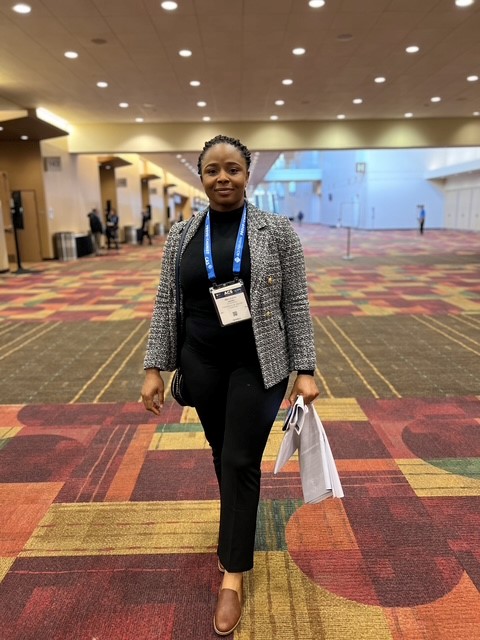
If you could go back, would you choose the same profession, specialty, etc.?
If I could go back, I would choose the same profession and specialty without hesitation. My journey in scientific research, particularly in medicinal and analytical chemistry, has been incredibly fulfilling. I am passionate about addressing critical public health issues, such as the opioid crisis and prostrate cancer research, and I find immense satisfaction in developing compounds that have the potential to make a real difference.
Though the path of a medicinal scientist is often filled with setbacks, failed experiments, and complex processes, these challenges have fostered resilience in me. Each success is amplified by the lessons learned from past failures, reinforcing the idea that perseverance is key to progress.
Reflecting on my experiences, the challenges and breakthroughs I’ve encountered have shaped my understanding of the field and deepened my commitment to scientific inquiry. Ultimately, the blend of intellectual challenge, societal impact, and continuous learning in my profession excites me. I take pride in being part of a field that strives to improve lives through science.
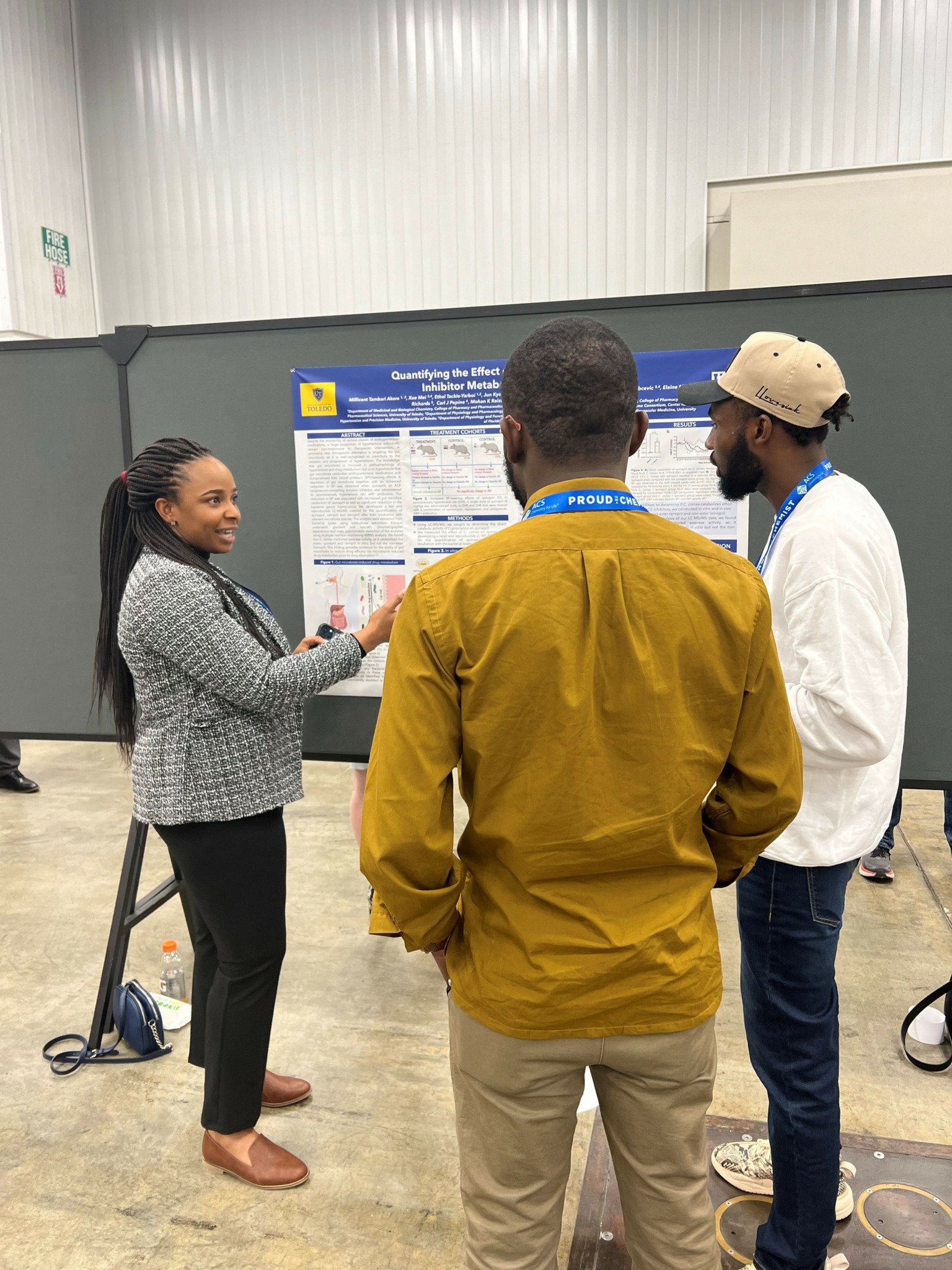
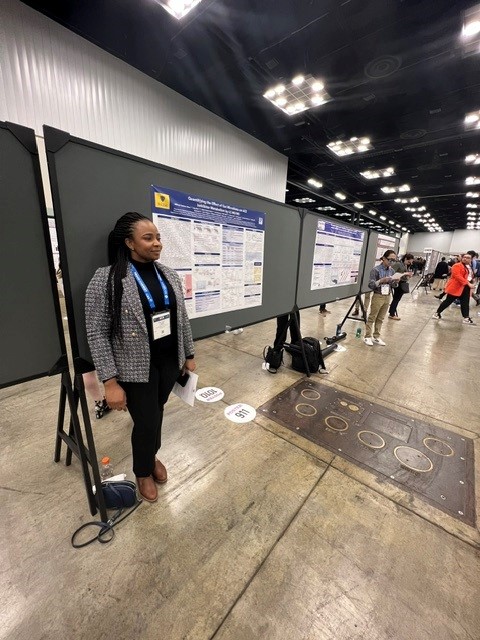
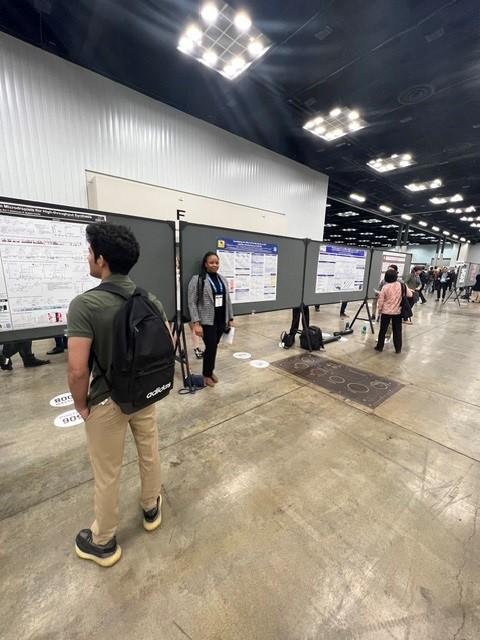
Image Credits
I have the rights to use these pictures.


